TravelingForMiles.com may receive commission from card issuers. Some or all of the card offers that appear on TravelingForMiles.com are from advertisers and may impact how and where card products appear on the site. TravelingForMiles.com does not include all card companies or all available card offers.
Some links to products and travel providers on this website will earn Traveling For Miles a commission that helps contribute to the running of the site. Traveling For Miles has partnered with CardRatings for our coverage of credit card products. Traveling For Miles and CardRatings may receive a commission from card issuers. Opinions, reviews, analyses & recommendations are the author’s alone and have not been reviewed, endorsed, or approved by any of these entities. For more details please see the disclosures at the bottom of every page.
Earlier this week, finally Japan caught up with the rest of the world (well, most of it) and fully reopened its doors to visitors for the first time since the pandemic first became a thing. Now, as demand for travel to Japan starts to spike, airlines are rushing to meet that demand in whatever way they can.
For Emirates, the airline with the largest fleet of A380 aircraft by far, putting a Whale Jet on its Tokyo route to meet the sudden rise in demand was as close to a “no-brainer” decision as things get in the aviation world and as of 15 November, that’s exactly what the airline is doing.
As things stand, Emirates operates a Boeing 777-300ER between Dubai and Tokyo Narita which allows it to offer customers 6 First Class suites, 42 Business Class seats, and 310 Economy Class seats for a total of 358 seats.
The A380, on the other hand, will offer, 14 First Class suites, 76 Business Class seats, and 399 Economy Class seats for a considerably more impressive total of 489 seats.
That’s a 36.5% increase in capacity without the need to add any extra flights so you can see why the decision to call up the A380 was an easy one.
Here’s the planned schedule for the A380 as it currently stands:
EK318 DXB 02:55 – 17:20 NRT (Daily)
EK319 NRT 22:30 – 05:30+1 day DXB (Daily)
There are winners and losers as a result of this aircraft swap but as the only losers are those booking First Class, I doubt that too many people will be shedding a tear 🙂
If you take a look at the First Class seat map for the 777-300ER that’s currently operating between Dubai and Tokyo, you’ll see that it has just six seats in the following layout:
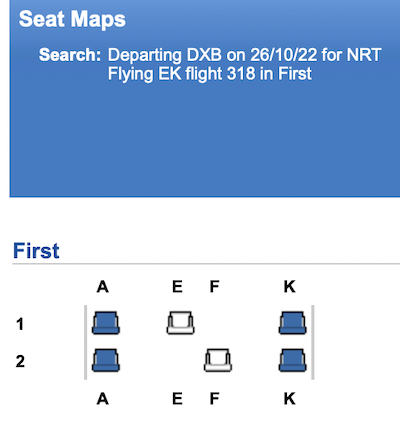
This is the layout that indicates that an aircraft has the new(ish) Emirates First Class suites cabin which has had the aviation world beyond itself with excitement since it first took to the skies back in 2018.
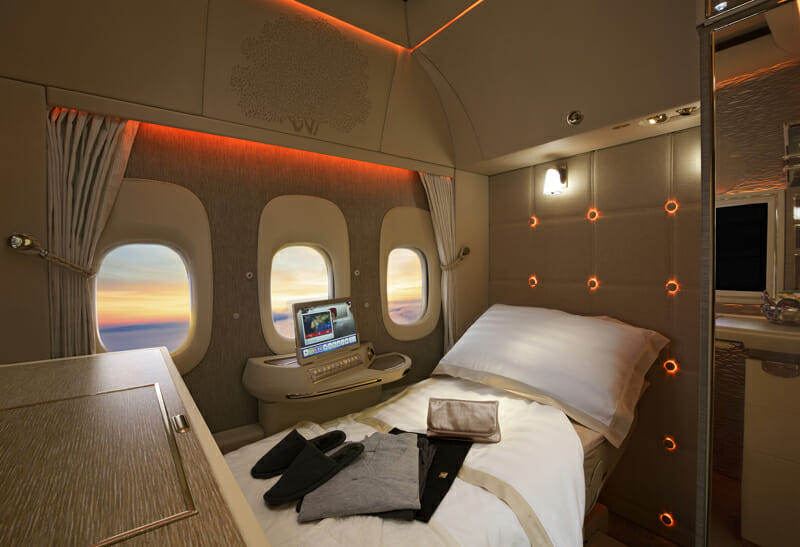
Unfortunately, none of the airline’s A380s offer this particular First Class cabin so ultra-premium flyers will have to “slum it” in a cabin that looks more like this:
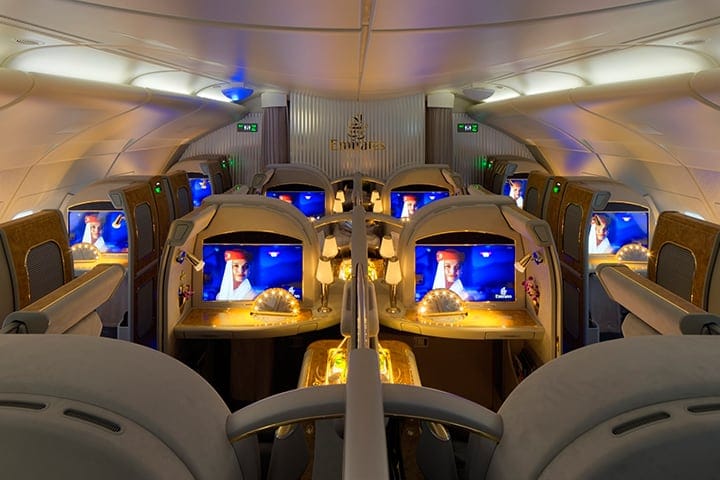
Oh how will they survive? 😁
Slightly further down in the aircraft cabin hierarchy is where things start to get better. A lot better.
In the Business Class cabin, the 777’s seats look very nice…
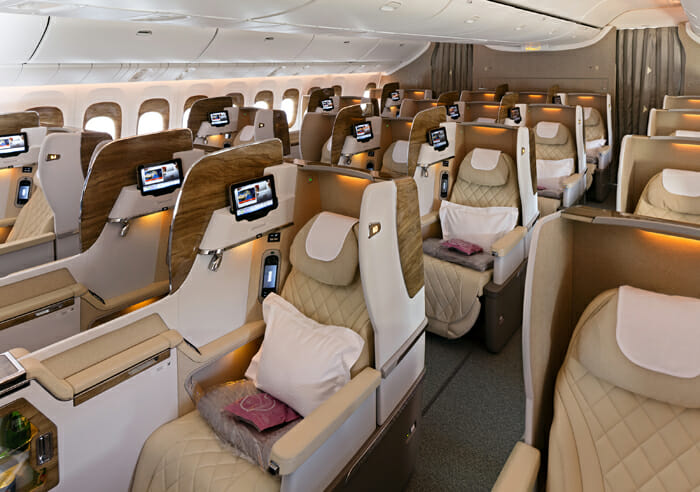
…but a closer look at the cabin’s seat map shows that not only do all seats not offer all-aisle access but that some seats have no direct access to either aisle at all.
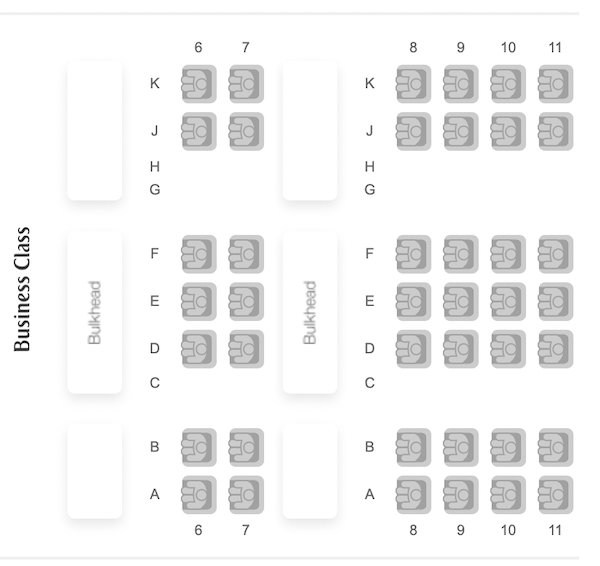
That’s appalling! This is 2022, not 2002, and who, in 2022, wants to pay thousands of dollars for a Business Class seat only to find themselves sandwiched between two other passengers?
Fortunately, things are considerably more civilized in the A380’s Business Class cabin where all seats have direct access to one of the aircraft’s two aisles and no one has to clamber over another passenger to stretch their legs.
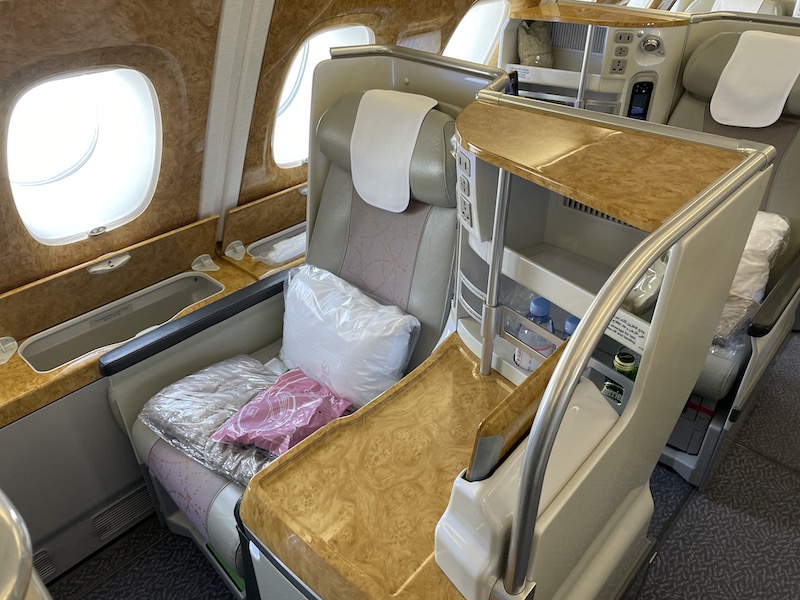
Also, not only is the A380’s Business Class cabin larger and considerably more comfortable than the comparable cabin in the 777, but it also has access to the A380’s onboard bar.
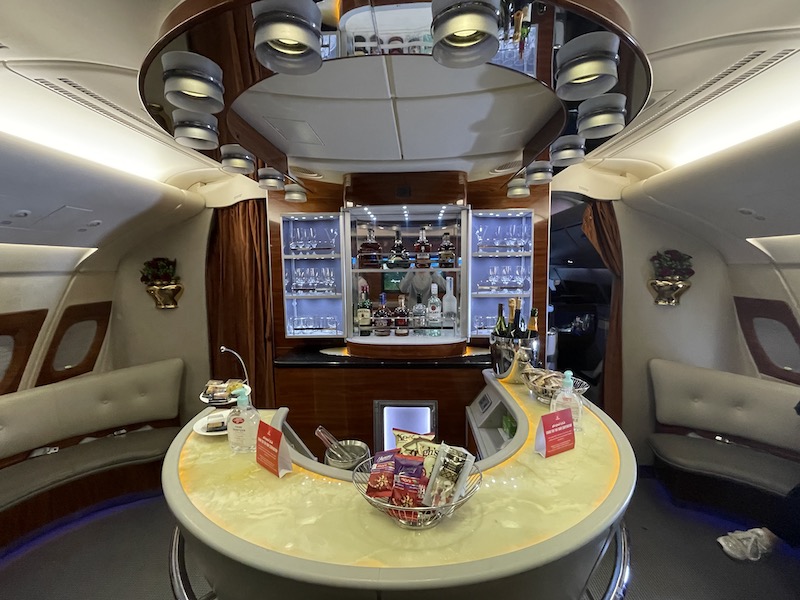
That’s a huge win for Business Class (and First Class) passengers.
Things are a bit better in the A380’s Economy Class cabin too.
Both the 777 and the A380 offer Economy Class seats with 32″ of pitch (legroom) but where the Economy Class seats in the 777 offer passengers just 17″ of width (which is pretty terrible), the A380’s seats offer 18″ of width and, on a long flight like DXB-NRT, that can make an incredible amount of difference.
Note: At the time of writing, the A380 scheduled to take over on the Dubai – Narita route in November doesn’t come equipped with a Premium Economy cabin but that doesn’t mean that an A380 with the new cabin won’t appear on this route in the coming months.
Bottom line
Emirates has responded to the Japanese government’s decision to fully reopen its country to visitors by announcing that the Boeing 777 that’s currently operating between Dubai and Tokyo will be replaced by an A380 from 15 November.
If you were hoping to fly this route in the newer Emirates First Class suites this is probably not the news you wanted to hear but for everyone else, the Dubai – Tokyo route is about to become a little more comfortable.

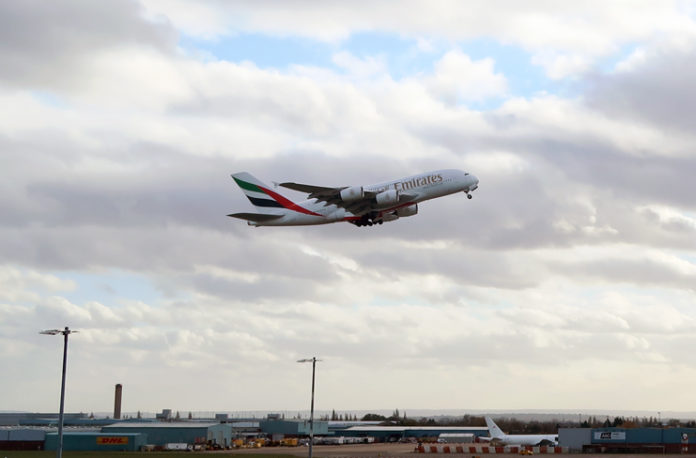

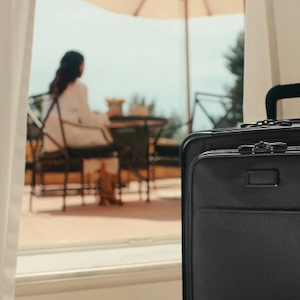
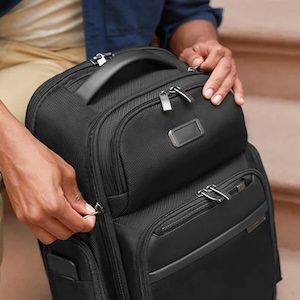
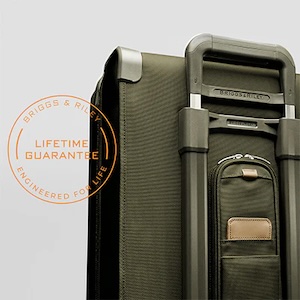
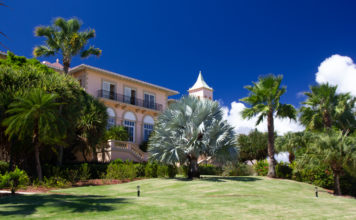





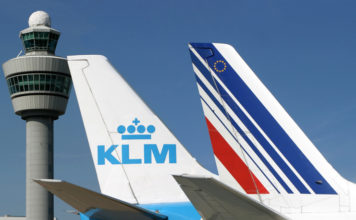
![Earn 20,000 bonus Amex points on Air France/KLM bookings [Targeted] a row of seats in a plane](https://travelingformiles.com/wp-content/uploads/2024/03/air-france-new-business-class-2-741-80x60.jpg)

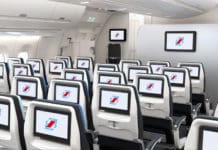




What is the economy seat configuration for this? 3-4-3 or 2-4-2? Thanks!
3-4-3